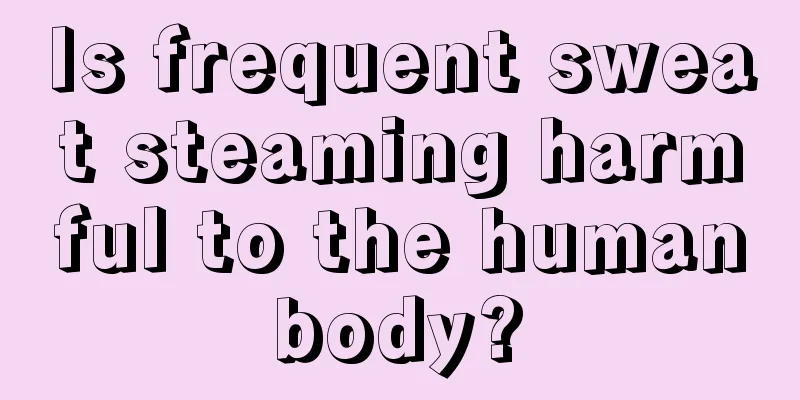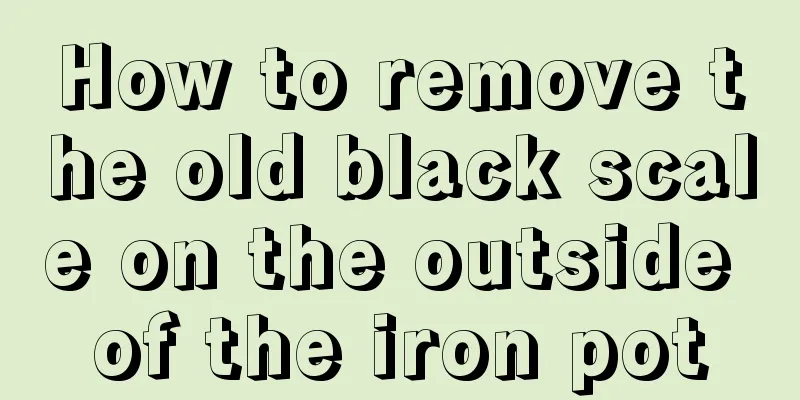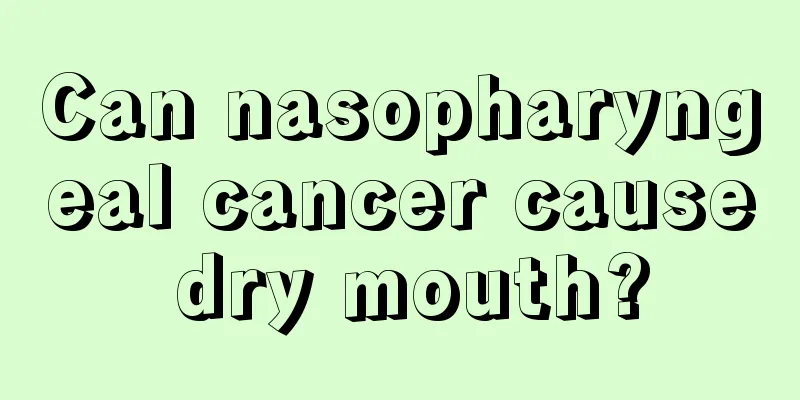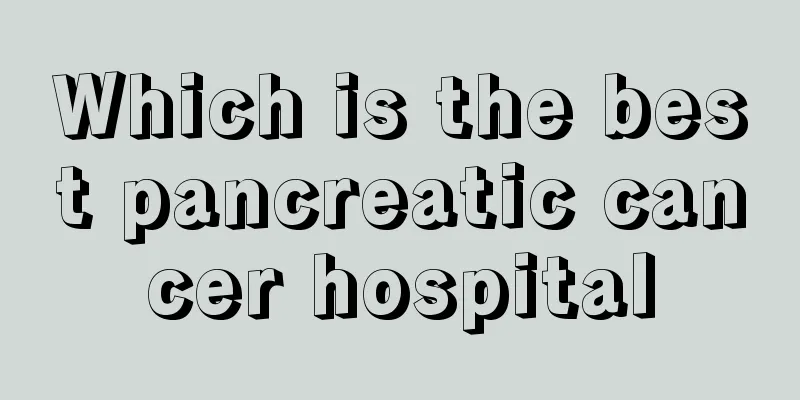Why is chemotherapy painful
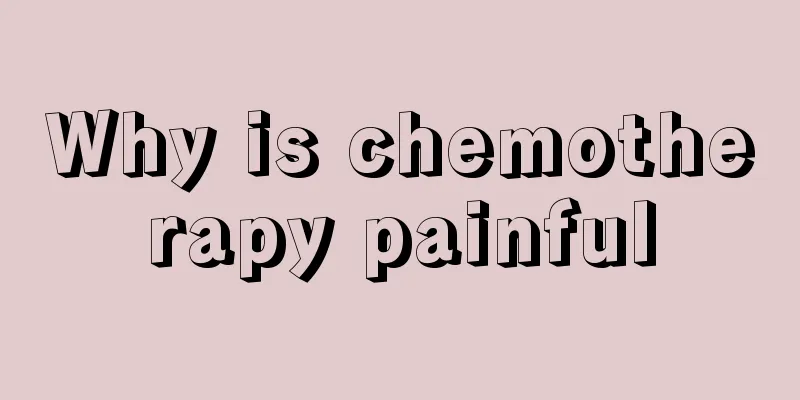
|
When it comes to chemotherapy, many people shudder immediately. The fear of chemotherapy far exceeds the pain brought by the disease. However, for the sake of their health, they have to use chemotherapy as a treatment to alleviate and control the pain. Chemotherapy mainly kills cancer cells in the body through chemotherapy drugs to achieve the inhibitory effect. Chemotherapy can bring many side effects, such as hair loss, vomiting, etc., which are particularly uncomfortable. So why is chemotherapy painful? Symptoms of chemotherapy reaction: vomiting Nausea and vomiting are the earliest adverse reactions to chemotherapy. Approximately 70%-80% of cancer patients receiving chemotherapy experience nausea and vomiting, and cisplatin (DDP) causes nearly 100% of nausea and vomiting. Severe nausea and vomiting will affect physical recovery and make patients afraid of future chemotherapy, or even make them unwilling or give up further treatment, making chemotherapy unsustainable. 1. Vomiting will seriously affect the function of the stomach, followed by the teeth, because vomiting will be accompanied by a large amount of vomit and stomach acid, and stomach acid is a strong acid that can corrode teeth. 2. Affect the patient's appetite. Due to frequent vomiting, the patient will feel nauseous and his appetite will be affected. Anorexia and not eating will lead to lack of nutrition, which will reduce the resistance and make people lose weight. 3. Frequent vomiting during chemotherapy will cause patients to suffer from exhaustion, weakness, pain and discomfort. This affects the patient's treatment course and recovery time. Due to obvious side effects, the patient has to stop chemotherapy. Symptoms of chemotherapy reaction: hair loss Hair loss usually occurs 2-3 weeks after treatment, or even after two treatments, and may occur gradually or in clumps. Hair loss can occur on any hairy part of the body, not just the head. Hair on the eyebrows, armpits, hands, legs and even pubic hair may be affected. However, the hair will grow back after the patient stops chemotherapy for a period of time, and it will often grow darker and thicker. However, clinical observations show that hair loss caused by chemotherapy not only affects the patient's image, but can also cause great psychological and physical pressure on the patient, reducing his or her confidence in fighting cancer. Once confidence is lost, it will inevitably cause relative obstacles to treatment. Symptoms of chemotherapy reaction: fever Fever is the most common symptom in patients after chemotherapy. There are two common reasons. On the one hand, cancer cells affect the body's ability to regulate body temperature, which hinders the body's normal temperature regulation. On the other hand, most patients will have reduced immunity due to the tumor itself or the treatment (chemotherapy), especially patients with low white blood cell count, who often have fever due to infection. In addition, drug reactions, autoimmune diseases, insufficient secretion of adrenal cortex hormones, or cancer itself can cause fever. Cancer patients are most afraid of increased body temperature, which will accelerate metabolism and tumor metabolism. Chemotherapy reaction: pain in the liver area While chemotherapy kills tumor cells, it also causes great damage to the body. One of the most common side effects is liver damage. In mild cases, it can cause liver cell damage and necrosis; in severe cases, it can lead to delays or even interruptions in the chemotherapy cycle, affecting the efficacy of the entire tumor treatment. Some patients may suffer more serious injuries, such as acute severe hepatitis and liver failure, increasing the risk of death. Symptoms related to liver damage: mainly fatigue, decreased appetite, abdominal distension, jaundice, dull pain in the liver area, etc. Through the above introduction, we found that every adverse reaction in the process of chemotherapy will have a certain impact on the treatment, especially vomiting, fever and liver damage. If they are not controlled in time, treatment will not be able to continue, which will lead to further deterioration of the disease and accelerate the rate of death. This is the main reason why chemotherapy kills people quickly. Therefore, it is recommended to use Chinese medicine as an auxiliary treatment during chemotherapy. On the one hand, it can reduce the side effects of chemotherapy and improve the body's immunity. On the other hand, it can continue to control tumor growth during the intervals between chemotherapy to prevent spread and metastasis. |
<<: How painful is chemotherapy
>>: Eye mucus medicine is effective
Recommend
How to relieve study pressure, there are 5 methods
Students are under very tight schedules and great...
What are the effects of Lianhuafeng Tea Pills
Lianhua Peak Tea Pills are mainly composed of clo...
Are ant bites poisonous?
Ants are a very common animal in our daily life. ...
What are the ways to prevent bladder cancer?
In recent years, bladder cancer has become one of...
Can I use Germanium Stone Steam Steaming every day?
Steaming as a health-care method is well known to...
What are the typical symptoms of liver cancer? Pay attention to these 5 symptoms in the early stage of liver cancer
Liver cancer is a common malignant tumor in my co...
What are the symptoms of epidemic Japanese encephalitis at different stages?
Japanese encephalitis is a relatively common dise...
What's wrong with lips twitching? Beware of facial spasm
Normally we all experience eyelid twitching, but ...
How long is the life expectancy after thyroid cancer surgery
The incidence of thyroid cancer has increased in ...
How to determine whether digestive bacteria survive
When raising fish at home, nitrifying bacteria ar...
The skin on my arms has hardened
The skin on the arms is generally rougher than th...
Causes of oral mucosal blood blisters
According to statistics, one in ten people has ha...
Which direction is better when sleeping with your head facing
Sleeping is something we have to do every day, so...
How much does it cost to treat skin cancer
Skin cancer is a common tumor among white people....
Involuntary twitching of thigh muscles
The phenomenon of involuntary twitching of the th...

